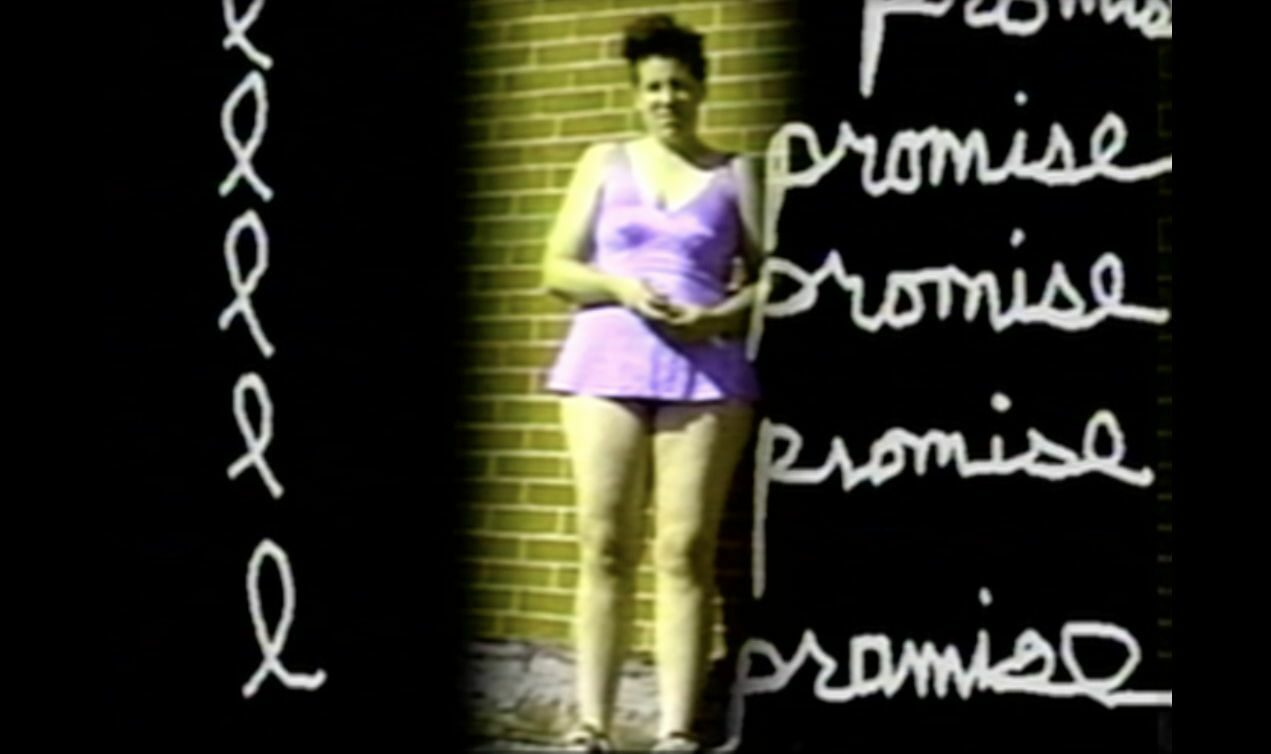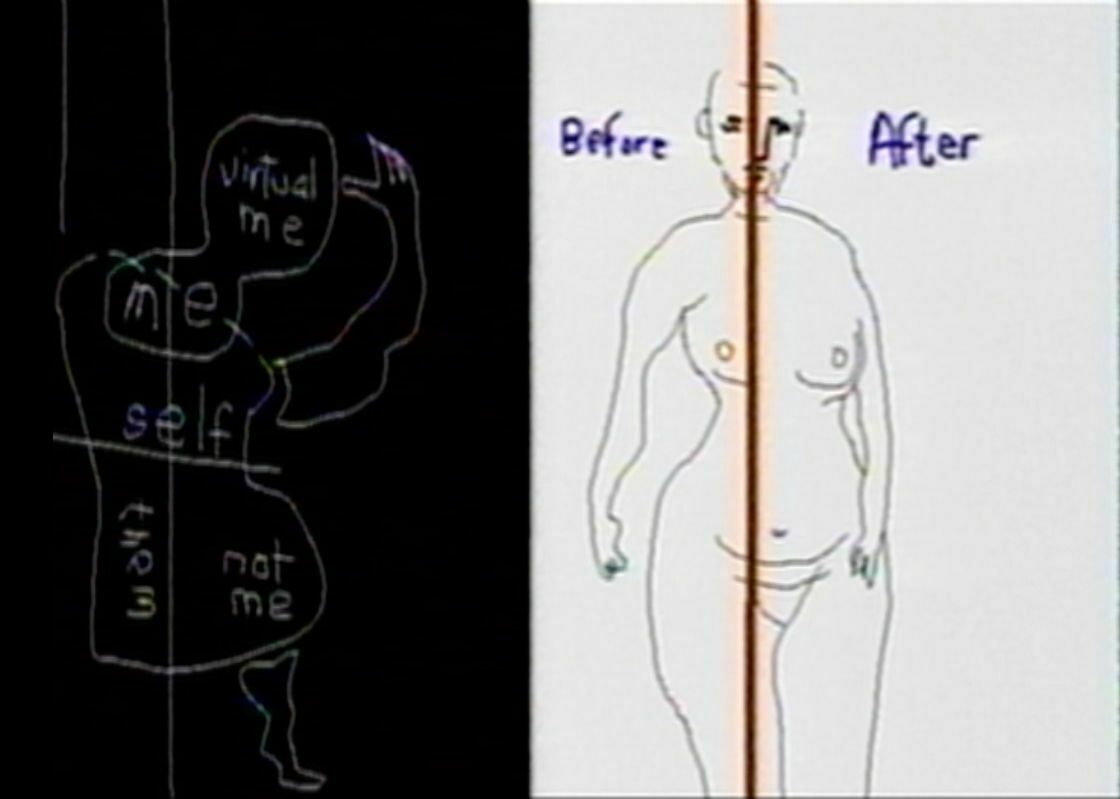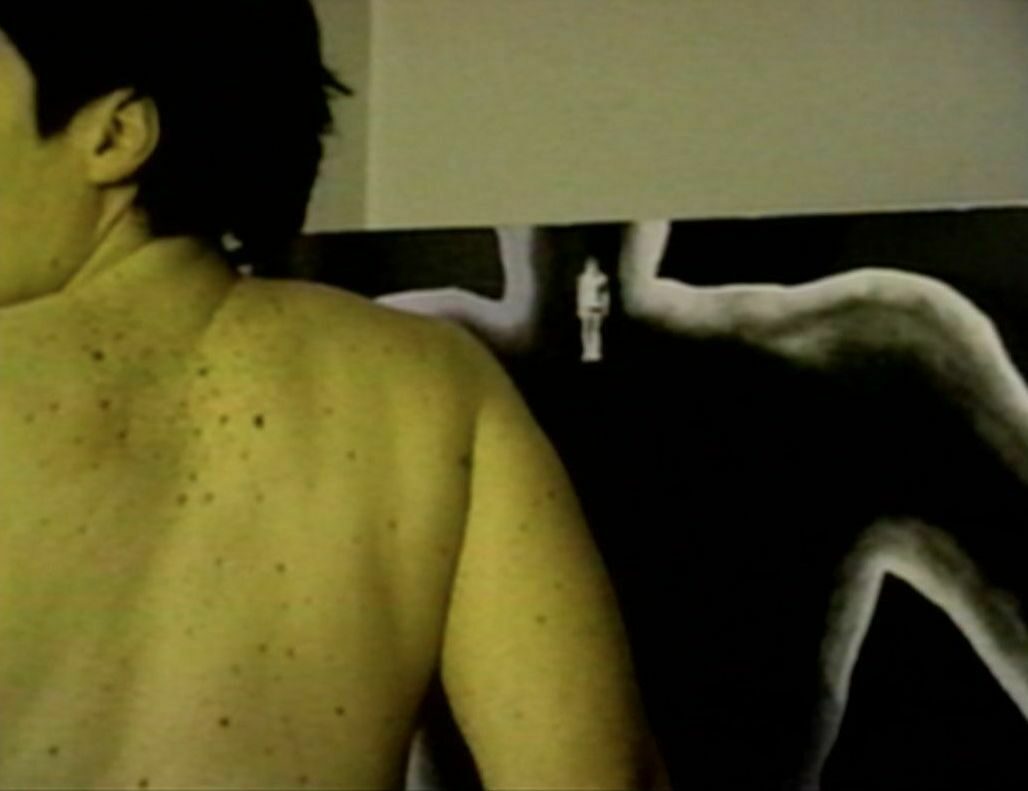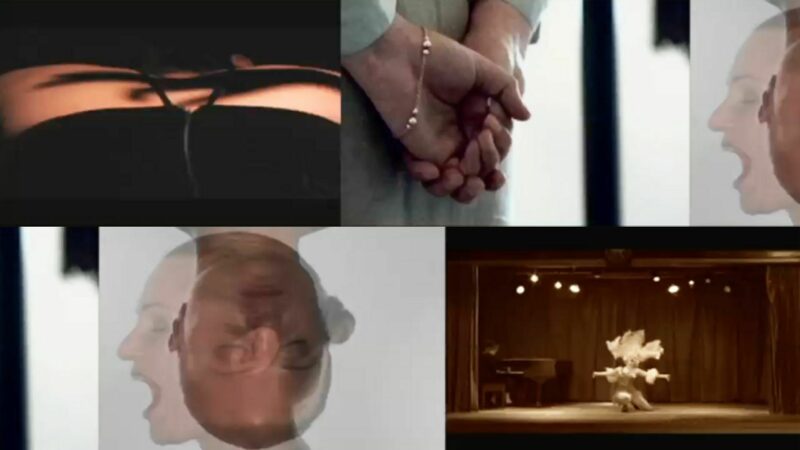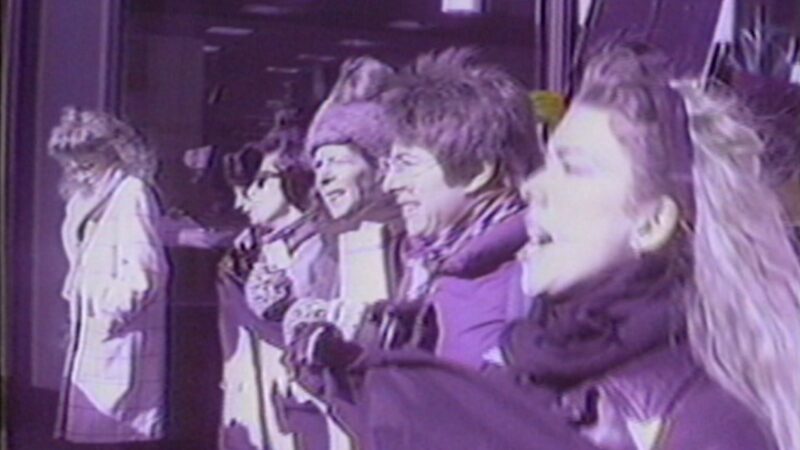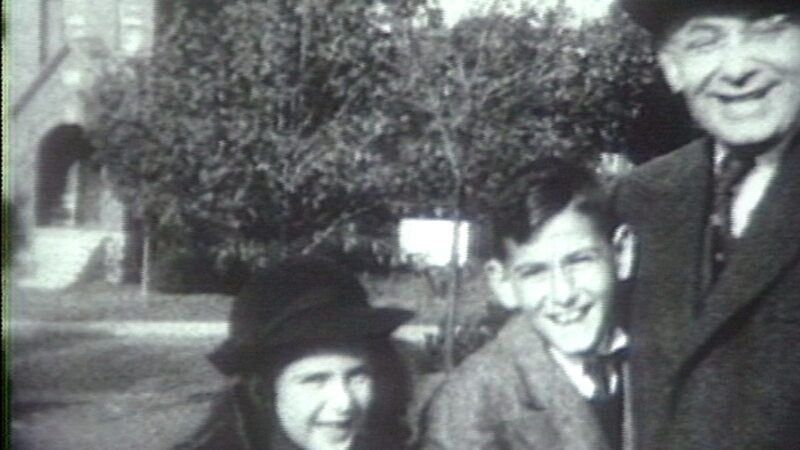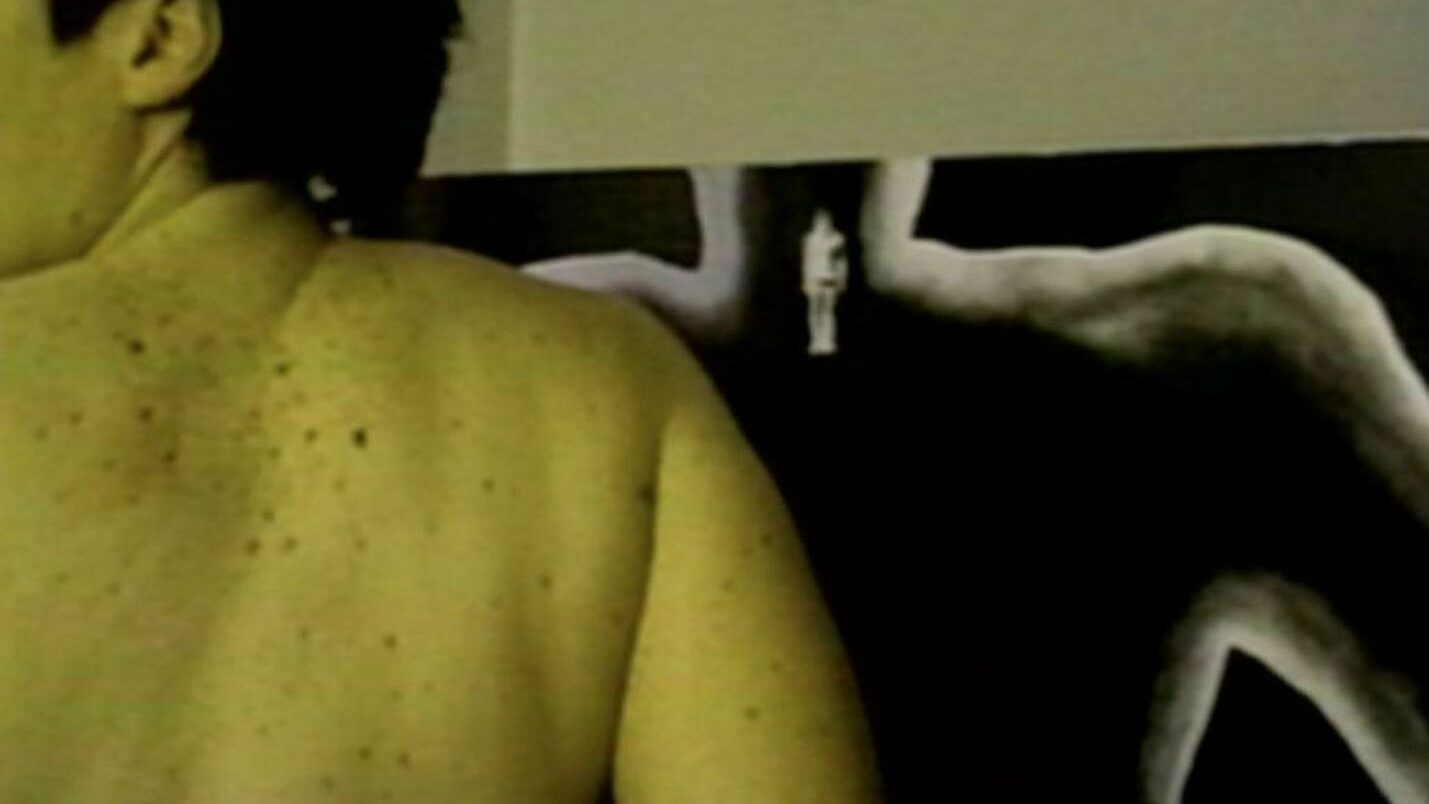
Presented only in theatres.
This film is part of the FIFA Expérimental program Les 50 ans du Groupe Intervention Vidéo – GIV.
I first saw Cathy Sisler’s work when I was a student in a Video History and Theory course nearly 20 years ago. I was at the beginning of working with video and exploring its possibilities. Her work was bold and striking, immediate and feeling, playful and devastating at the same time. Watching it destroys you — that is, it destroys the structures at the base of your viewership. It leaves you with pulsing questions and offers another method to rebuild yourself and your understanding of the world. When I first saw Sisler’s skilful balancing of these propositions, it left a deep impression and questions. I hope that, in my own way, I am taking up these questions and working in this lineage. The Better Me particularly hits a nerve for anyone who has been told that what they are experiencing isn’t real but knows better.
The Better Me peels back the secret psychic life of the performance of everyday life. Sisler presents an intense excavation of how a self is constructed and what it means to move in a gendered body. Using the device of the double, she explores the subversive possibilities of what a body can do. She takes up the proposition that images have their own agency and makes daring gestures interrogating these limits, including creating a human-sized facsimile of her doubled image, which accompanies her public self. In sharp prose, she constructs a text combining genres of television infomercials and taped therapy sessions. Narrated by Sisler herself, this text is put into conversation with her performance and presentation of the body in public space. The artist asks, “By what virtual amputation can I remove myself from this debt and the system that transacts it.” She brings us to the limit, where free movement might be impossible and presents an image that reassures and allows a life otherwise.
– Kim Kölle Valentine, guest programmer
Director’s statement:
It IS possible to invent someone who will be with us all our lives. […] She stands over there watching me. Watching me with those eyes. One look back into her eyes watching me makes me question everything I do and say. […] She invented herself as separate from me because she knew our integrity was in danger here. And now, our separation IS our integrity. She has the body of a particular adolescent girl: my body.., then.
– Cathy Sisler [from the voice-over narration of the video The Better Me]
This film is part of the FIFA Expérimental program Les 50 ans du Groupe Intervention Vidéo – GIV.
I first saw Cathy Sisler’s work when I was a student in a Video History and Theory course nearly 20 years ago. I was at the beginning of working with video and exploring its possibilities. Her work was bold and striking, immediate and feeling, playful and devastating at the same time. Watching it destroys you — that is, it destroys the structures at the base of your viewership. It leaves you with pulsing questions and offers another method to rebuild yourself and your understanding of the world. When I first saw Sisler’s skilful balancing of these propositions, it left a deep impression and questions. I hope that, in my own way, I am taking up these questions and working in this lineage. The Better Me particularly hits a nerve for anyone who has been told that what they are experiencing isn’t real but knows better.
The Better Me peels back the secret psychic life of the performance of everyday life. Sisler presents an intense excavation of how a self is constructed and what it means to move in a gendered body. Using the device of the double, she explores the subversive possibilities of what a body can do. She takes up the proposition that images have their own agency and makes daring gestures interrogating these limits, including creating a human-sized facsimile of her doubled image, which accompanies her public self. In sharp prose, she constructs a text combining genres of television infomercials and taped therapy sessions. Narrated by Sisler herself, this text is put into conversation with her performance and presentation of the body in public space. The artist asks, “By what virtual amputation can I remove myself from this debt and the system that transacts it.” She brings us to the limit, where free movement might be impossible and presents an image that reassures and allows a life otherwise.
– Kim Kölle Valentine, guest programmer
Director’s statement:
It IS possible to invent someone who will be with us all our lives. […] She stands over there watching me. Watching me with those eyes. One look back into her eyes watching me makes me question everything I do and say. […] She invented herself as separate from me because she knew our integrity was in danger here. And now, our separation IS our integrity. She has the body of a particular adolescent girl: my body.., then.
– Cathy Sisler [from the voice-over narration of the video The Better Me]
Also presented:
Mighty Niagara Film Fest, Canada (2024)
Projection spéciale d’œuvres cinématographiques et vidéo de la collection LUX, organisée par les étudiants du programme MA Artists’ Film & Moving Image, Angleterre (2018)
Rencontres internationales de vidéo de création et poésie électronique, France (1998)
Musée des beaux-arts du Canada, Collection permanente, Canada (depuis 1998)
Mighty Niagara Film Fest, Canada (2024)
Projection spéciale d’œuvres cinématographiques et vidéo de la collection LUX, organisée par les étudiants du programme MA Artists’ Film & Moving Image, Angleterre (2018)
Rencontres internationales de vidéo de création et poésie électronique, France (1998)
Musée des beaux-arts du Canada, Collection permanente, Canada (depuis 1998)
| Director | Cathy Sisler |
| Editing | Cathy Sisler |
| Camera | Miriam Sampaio, Cathy Sisler |
| Sound mixing | Cathy Sisler |
In Partnership with

Session
• Université Concordia - J.A. de Sève, LB-125, Pavillon J. W. McConnell
Saturday, march 22, 2025, 03:00 p.m. — 03:53 p.m.


Production
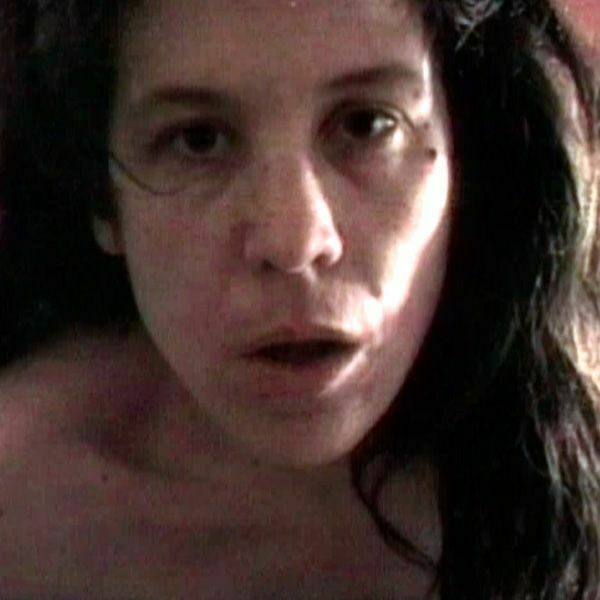
Cathy Sisler
Born in Wisconsin (United States) and based in Canada since 1965, Cathy Sisler was a videographer, musician, performer, painter and writer. During the 1990s and at the beginning of 2000, she created different characters: the Spinning Woman, the Staggering Woman and the Falling Woman. Her work raises the question of a fragility that is explored through the notion of the double and the marginalized body. She won the Jury Prize at the Festival du cinéma et des nouveaux médias (Montréal, 1997), and was nominated for best video at the 16th Rendez-vous du cinéma québécois (Montréal, 1997). Her video The Better Me (1995) is part of the permanent collection of the National Gallery of Canada. Recently Cathy Sisler worked for Start Me Up Niagara, a shelter for the homeless, where she collaborated with the Art Garage, a space where street people are invited to create, make art and express themselves without constraint or judgement.
Biographical notes provided by the film production team
Biographical notes provided by the film production team
Lullabye For The Almost Falling Woman (1996)
Mr. B. (1994)
Aberrant Public Speaking (1994)
Aberrant Motion #1 (1993)
Mr. B. (1994)
Aberrant Public Speaking (1994)
Aberrant Motion #1 (1993)
In the same session
Université Concordia - J.A. de Sève, LB-125, Pavillon J. W. McConnell
Saturday, march 22, 2025, 03:00 p.m.




